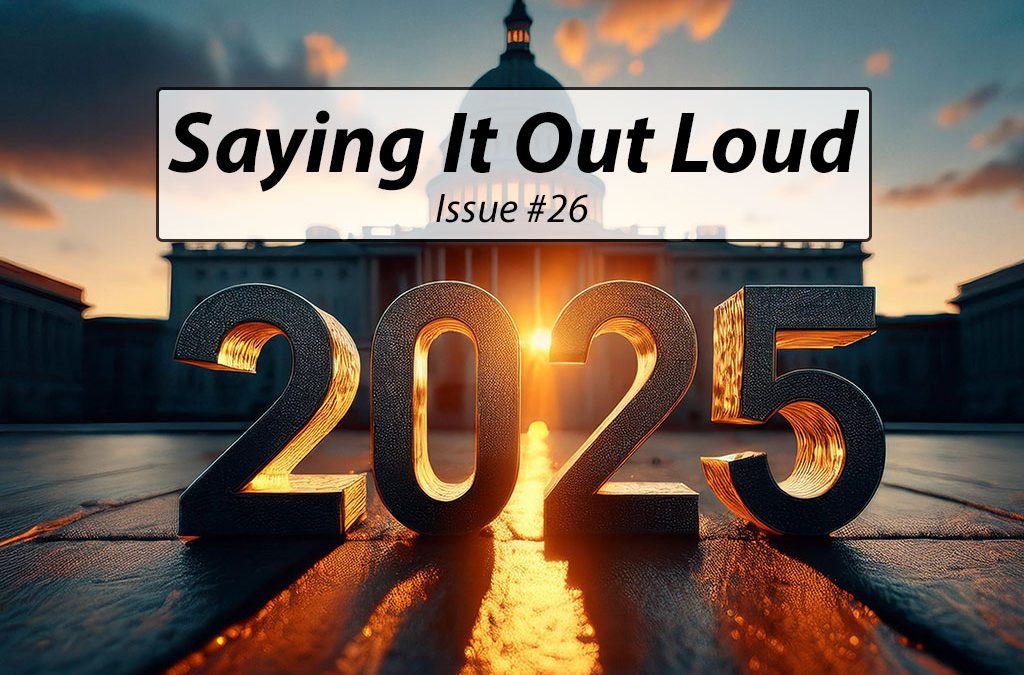Turn your voice into action
New Chapter Begins for Family Businesses as President-Elect Trump, New Congress Tackle Economic Policies, Taxes, and Growth in 2025
We start a new chapter after this month’s Presidential election.
The Republican Party under President-elect Donald J. Trump will have both chambers of Congress working with him and the substance and tone, so far, looks beneficial for family businesses, since much of the former President’s expiring Tax Cuts and Jobs Act provisions look to remain intact.
But life and economic policy in Washington, D.C., is never that simple.
Though still early days, our bipartisan Beltway economic policy and tax partners at Squire Patton Boggs believe the Trump agenda will focus heavily on promised border security, regulatory reform, the extension of low tax rates, domestic energy production, and an “America First” approach to trade and foreign policy.
The results of the elections, according to Squire, change the mood of America. Distrust of institutions, including both government and the media, is now a prime influencer among millions of American voters, they believe.
President Joe Biden’s emphasis on enacting large scale new domestic policy initiatives and a conciliatory posture in America’s interaction, did not work for more than half the country. Hence, the GOP now has the coveted “trifecta” in electoral politics: the House, Senate, and White House.
How the next four years will end is anybody’s guess, but right now America’s family businesses are feeling better about general economic directions, a friendlier business environment, and taxes remaining the same, or going down.
Like any story, however, there are always twists and turns, and cliff hangers.
The new, and some old, worries are what damage proposed heavy tariffs might cause, finding and training workers, leveling the tax playing field for family business pass-through entities, and, well, the many Rumsfeldian unknown unknowns.
No matter, our job at Family Enterprise USA is to be vigilant in the face of whatever change may come in 2025 and to make sure the voice of family business continues to be strong, and loud. This will not change.
Family Office Challenge: Communication
Family Offices and Successful Individuals along with Policy and Taxation Group will also be paying attention to the new focus of our Legislators and the expiration of the TCJA tax provisions.
The family office market is big, and growing, but not static.
In North America, family offices manage about $1.72 trillion in assets, with 79 percent of family offices involved in impact investing, according to a recent report from the Royal Bank of Canada.
The report examined 144 family offices across the United States and Canada and found 68% of family offices are invested in venture capital, indicative of a deep desire to nurture innovation, entrepreneurship, and family businesses.
On the wealth transfer side, millennials are set to inherit as much as $90 trillion in assets before 2044 from their Baby Boomer and Silent Generation family members.
The two traditional models, the single-family office and the multi-family office, are going through some meaningful change, but a third option, the “virtual family office” is starting to take oxygen out of the “traditionals.”
Today, the single-family office needs a big-big family behind it to survive, that is, wealth of $500 million or more. The more common multi-family office is working the middle and small family wealth portion of the spectrum, and in many cases scrambling to manage everything from investments to personal administration to coaching Next Gen leaders.
The upstart virtual family office can manage much smaller family wealth patrons and can offer an ala carte offering at lower fees, which is the kind of talk the Next Gen likes to hear.
In a recent roundtable discussion hosted by Ultra High Net Worth Institute, of which I was a part, the topics ranged from rethinking the family office to the sometimes-awkward subject of “how to communicate to the Next Generation.”
The panelists were Andrew Busser, President and CEO, Pitcairn; Wally Head, Director, Ultra High Net Worth (UHNW) Institute; Linda Mack, Founder and President, Mack International; David Novick, Managing Director, Price Waterhouse Coopers, Family Enterprise Group; and Michael Zeuner, Managing Partner, WE Wealth Management Group. I moderated the panel under the auspices of my work with Policy and Taxation Group.
The biggest issue, and this is where the “virtual family office” has the advantage, and research backs this up, is communication.
Family office leaders must learn how to use the same language as the next generation, panelists agreed. And this must be done right now, or family offices across the spectrum are going to get crushed by AI-driven platforms that understand them and can “communicate” in their language.
Traditional family offices, both single and multi-family offices, are having a hard time with this kind of communication because, well, they’re traditional.
There are other threats too.
A recent Morgan Stanley Family Office Report says making decisions on family governance, investment management, next generation succession planning, and family office operations are part of what it calls mysteriously, the “unresolved areas.”
Some of these areas fall nicely into arms of the virtual family office.
The first of these “unresolved areas,” it highlights, is the old-school investment portfolio, which is outsourced by almost 80% of family offices to external investment advisors. So, who needs a family office mark up their fees for that?
Next, it seems families are still firmly in control of their investment decisions, with 90% reporting family members are closely involved in all investment decisions, with nearly half saying the investment decisions are made by the family principal.
Okay, again, who needs a family office for 10% of the investment decisions?
Family offices, the report says, also account for nearly 70% of succession planning and coaching of the next generation leaders, on such issues wealth education. This education is performed by family office advisors. But, as pointed out earlier, the communication skills need improvement and more training, as well as more subject matter specialists.
But the one thing is common among all family offices, whether traditional or virtual or DIY: when dealing with Capitol Hill’s changing economic policies, damaging taxes, and protecting the Next Generation of job creators, the louder the stories and challenges of successful individuals and family businesses are told, the better chance they are heard in the new Congress.
So now is the time to get your voice heard.
Next year, will be a critical year for tax and economic policies affecting family businesses, family offices, and successful individuals. So, let your voice be heard!
We hope you've enjoyed this article. While you're here, we have a small favor to ask...
As we prepare for what promises to be a pivotal year for America, we're asking you to consider becoming a member.
The need for fact-based reporting of issues important to family owned businesses and protecting a lifetime of savings has never been greater. Now more than ever, successful families and family owned businesses are under fire. That's why Family Enterprise USA is passionately working to increase the awareness of issues important to family owned businesses built on hard work, while continuing to strengthen our presence on Capitol Hill. The issues we fight for or against with Congress in Washington DC include high income tax rates, possible elimination of valuation discounts, increase in capital gains tax, enactment of a wealth tax, and the continued burden of the gift tax, estate tax and generation skipping tax.
Family Enterprise USA promotes generationally owned family business creation, growth, viability, and sustainability by advocating for family businesses and their lifetime of savings with Congress in Washington DC. Since 2007, Family Enterprise USA has represented and celebrated all sizes, professions and industries of family-owned enterprises and multi-generational employers. It is a bi-partisan 501.c3 organization. Family foundations can donate.
#incometax #CapitalGainsTax #R&DExpensing #DontPunishSuccess #GrantorTrusts #StepUpinBasis #likeKindExchanges #AcceleratedDepreciation #EstateTax #Deathtax #wealthtax #taxLegislation #CongressionalCaucus #incometaxrates #repealestatetax #AdvocatingForFamilyBusinesses #FamilyOwnedBusiness #WomenOwnedBusiness @FamilyEnterpriseUSA #FamilyEnterpriseUSA #FEUSA


